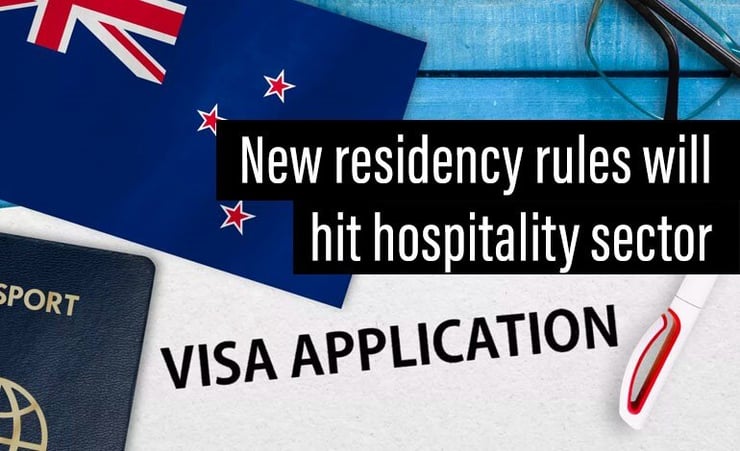New residency rules will hit hospitality sector

In 2022, the government announced a proposal to change the skilled migrant category visa by introducing a six points-based system as part of the immigration rebalance. This week the government confirmed this new system will come into effect from October 9, 2023, and the last date to apply under the current system would be August 15, 2023.
Under the new system, there would be a scope to claim three to six points based on New Zealand occupational registration, qualifications (Bachelor's degree or higher) or income from your job earning at least 1.5 times the median wage. Clearly, the applicants pursuing occupations leading to registration or studying bachelor’s degree or above would have an advantage over the others.
Unfortunately, it’s a dead end for the majority of those who are opting New Zealand to pursue low level diploma programmes, unless they are pursuing one of the green list programmes that gives a ray of hope to qualify under the green list residence pathway at some point in the future.
If we look at this in a broader aspect, this is going to affect the hospitality sector, as the majority of migrants used to come for low-level diploma programmes, and after understanding about this new point system, they may not choose New Zealand as their destination.
The new points system won’t give any such advantage to those who are outside of the Auckland region. While Immigration New Zealand (INZ) introduced 30 points for skilled employment outside of Auckland region in year 2016, it gave a lot of economic boost to emerging cities like Christchurch, Rotorua, Hamilton, Tauranga, Palmerston North, New Plymouth, etc; and the population growth rate in the Auckland region fell from 2.07 per cent in 2016 to 1.27 per cent in 2023.
Under the new system, applicants with a Master’s qualification would be able to claim five points straight up, and most of the education providers offering master’s qualification in a variety of subjects are based in the Auckland-wide region itself, and it is a clear indicator that it may create an alarming situation for Auckland region in the near future due to infrastructure challenges.
Also, under this new system, applicants would need to secure a job, or a job offer, with an accredited employer like other residence pathways, such as straight to residence and green list residence pathway. It is clear the government is willing to encourage all employers to attain the employer accreditation at some point so that it becomes easy to manage compliance and risks.
This new system is straightforward but comes with certain pros and cons for migrants, as well as a few industry sectors.
(The writer is Director & Principal Adviser at Kiwiana Immigration & Education - www.kiwianaimmigration.co.nz)


